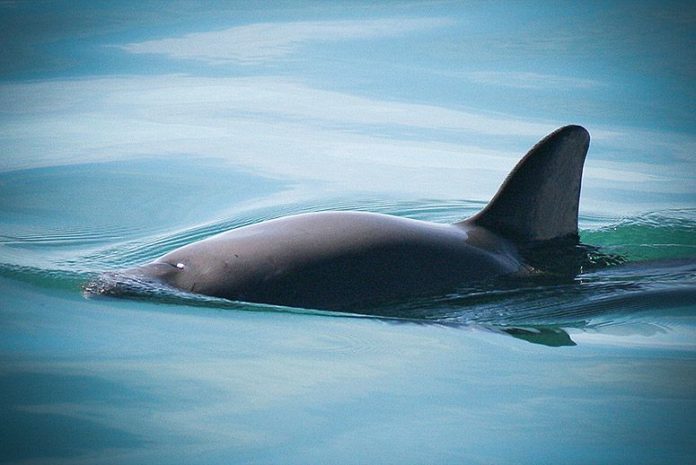
In the Gulf of California in Mexico, Sea Shepherd, the marine conservation organization that uses direct action tactics to protect marine life, has seized fishing nets killing the critically endangered vaquita porpoise.
Conservation groups such as Sea Shepherd and Greenpeace have been working with Mexican officials to patrol vaquita habitat. The vaquita porpoise is in imminent danger of extinction due to the continued poaching of the totoada fish in the seas off Mexico.
In Hong Kong and southern China, thefish swim bladder of the totoaba fish is a highly sought-after traditional remedy. As a result, in the seas of Mexico, gill nets are being used to target the toboada. However, due to this practice, a number of other endangered species are also becoming ensnared in the nets—including the vaquita porpoise. It has been estimated that fewer than 100 vaquita porpoise survive.
According to reports, the crew of the Sea Shepherd vessel Farley Mowat spent more than six hours pulling in the 1.5 miles of net. As many as 60 dogfish sharks and two species of protected hammerhead sharks were found within the net.
As part of the group’s “Operation Milagroll II,” which aims to protect the vaquita, The Farley Mowat, a 110-foot former U.S. Coast Guard vessel, joined Sea Shepherd’s research vessel, the Martin Sheen.
Earlier this month, at the annual meeting of the international body on endangered species, British conservationist warned that without drastic measures, the vaquita could become extinct within as little as two years.
In an attempt to protect the species and save it from extinction, in April 2015, the Mexican government issued a 2-year ban on gill-net fishing in the vaquita’s habitat. However, just months after the ban was put in place, Greenpeace activist found that nets were still being placed in the banned areas. In addition, late last year, after Sea Shepherds sent in footage of a baby humpback whale entangled in illegally set gill nets, the Mexican Navy granted the group permission to locate and seize gill nets illegally set inside the preserve.
“Prior to Dec. 25, Sea Shepherd patrolled the gill net ban zone and reported to the Navy the position of any illegal activity,” said Oona Layolle, captain of the Farley Mowat. “The Navy would then come and stop the poachers. But I knew that we could be of better help by retrieving the nets using our new ship.”
The vaquita, whose name translates as “little cow”, is the world’s smallest species of cetacean. Since 1996, the vaquita has been listed as critically endangered by the U.S. and Mexico. In fact, scientists estimate that the vaquita porpoise population has fallen from 200 porpoises in 2012 to just 97 today.
In the Far East, the swim bladder of the totoaba can sell for $3,800 a pound, creating a lucrative, low risk market for illegal fishing. If caught with the fish, anglers are simply issued with a small $500 fine. Mexico’s Congress is currently working on legislation “that would put punishment for totoaba fishing and smuggling on par with cocaine trafficking,” according to TakePart.
“Marine scientists estimate that it would take 40 years to rebuild the population to even 2008 levels,” Layolle said. “Our efforts to preserve these beautiful animals must be constant and we must protect the Vaquita for as long as it takes.”
You want to support Anonymous Independent & Investigative News? Please, follow us on Twitter: Follow @AnonymousNewsHQ
This Article (Sea Shepherd Works With Mexican Government To Seize Illegal Fishing Nets) is free and open source. You have permission to republish this article under a Creative Commons license with attribution to the author and AnonHQ.com.




